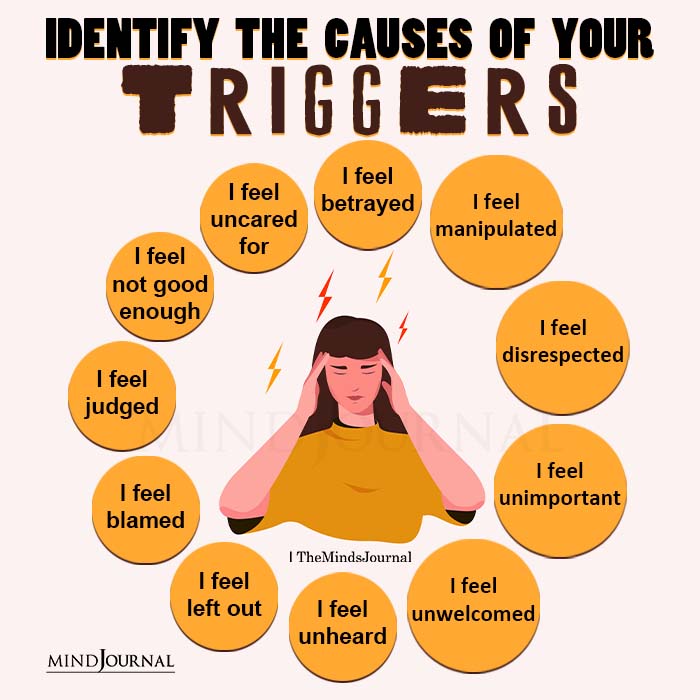If you are frustrated of yourself for putting your foot in your mouth all the time, then this you’ve come to the right place. Explore how to practice Right Speech as advised by The Buddha, and how practicing Right Speech can go a long way in helping you be more mindful.
KEY POINTS
- People can learn to control their speech—both inner and outer—in order to avoid pain and regret.
- Changing one’s habit of speech demands practice bringing mindful attention to one’s inner experiences.
- One can practice being mindful when it counts, rather than trying to be mindful all the time.
Any therapist will tell you that the following words are frequently heard in session:
“I know I shouldn’t have said anything, but….”
“Before I could think, I blurted out….”
“I wish I had just kept my damn mouth shut….”
Therapists and clients alike have spoken words that we regret, that made situations worse, that hurt others, and that made us look and feel petty, cruel, or just plain nuts. At one time or another, we have all learned the hard way that our words have incredible power. We often resolve never to repeat the mistake… and yet, it inevitably happens again.
Alongside the ethical teachings of “Right Action” and “Right Livelihood” outlined in The Noble Eightfold Path, the Buddha offered a teaching on how to avoid distress, tension, and remorse due to unskillful speech. This teaching is called “Right Speech” or “Wise Speech.”
Related: 7 Daily Habits To Help You Practice Mindfulness Effectively
What Is Right Speech?
The Buddha defined Right Speech as “abstinence from false speech, abstinence from malicious speech, abstinence from harsh speech, and abstinence from idle chatter.” In short, our speech should be true, designed to promote harmony and understanding, pleasing and gentle in tone, and used for a mindful purpose.
Psychiatrist and Buddhist scholar Mark Epstein aptly pointed out in his book, Advice Not Given, that Right Speech also applies to how we speak to ourselves. Many of us engage in automatic, critical self-talk and other self-defeating thought patterns. For example, we may chide ourselves for being “stupid” or “lazy” when we make a mistake.
When we practice Right Speech inwardly, we train ourselves to notice the habitual thought loops we engage in and the stories we tell ourselves. We examine these thoughts for truth and helpfulness.
In so doing, we learn to avoid the temptation to mindlessly accept such thoughts as truth, and we develop kinder, more flexible, and more compassionate inner dialogues.
Right Speech, whether applied to external or internal speech, requires a commitment to staying attentive to our thoughts in order to choose whether or not to speak, what we wish to say, and how we wish to say it.
This intentional awareness of our thoughts is the essence of mindfulness: We are noticing with openness and acceptance what is arising within us and then proceeding to act thoughtfully.
But staying mindful at all times is difficult, even for the most dedicated meditators and mindfulness gurus. For most of us, it’s simply not realistic! So what can we do?

The following strategies can help all of us increase our practice of Right Speech.
8 Strategies For Practicing Right Speech
1. Notice your thoughts in difficult moments.
It’s hard to stay attentive to our thoughts 24/7, but we can selectively pay attention to get the most bang for our buck. Pay attention to the thoughts that arise when you have made a mistake or feel confused, frustrated, hurt, or angry.
These are key times when automatic and habitual thought patterns tend to crop up. Often, they come in the form of self-criticism; other times, we notice an instinct to blame others, make excuses, or give up with thoughts like, “What’s the point?”
Over the course of a week, notice your thought patterns at such times and write them down. Hold these thoughts up to the standards outlined by the Buddha—are your internal words true? Helpful? Kind? Purposeful? When you find repetitive thoughts that don’t meet these criteria, flag those thoughts as ones you can disregard.
You can even give them a name, such as “critical thoughts,” or “unhelpful thoughts,” or “blaming thoughts.” When you notice such a thought arise, give yourself permission not to pay them any attention. Watch them come and let them go. What a relief!
2. Next, work to cultivate inner words that are kind, helpful, true, and useful.
Focus on words that help you achieve your goals and become the person you wish to become. These might be thoughts like, “I am getting better every day,” “I don’t quit,” and “I can accept this.” Practice these thoughts in the morning and at night before bed.
Related: Is Your Mind A Master Or Slave? 4 Ways To Master Your Mind
3. Listen more than you speak.
This is an easy first step for practicing Right Speech with external dialogue. When someone is speaking, notice the natural temptation to formulate a reply even before they are finished.
Instead, try to stay present and listen. Notice your internal experiences while also listening deeply. This can take some practice! Make it a habit to pause a beat before responding and use that moment to fully register what you’ve heard before replying.
4. Know your triggers.
You can probably identify the people, situations, times of day, or circumstances that tend to create stress and agitation fairly easily. These are moments when unskillful speech is most likely to occur. Perhaps you have a co-worker or in-law who pushes your buttons, or you are super testy on the drive home from work.
Plan ahead for these times. When you know you are entering these specific situations or circumstances, set an intention to slow down, breathe more slowly and deeply, and pause before speaking. These are excellent opportunities for working our mindfulness muscles.

5. Clarify your goals before speaking.
Is your speech designed to express an idea, to show you understand someone else, to accomplish a goal, etc.?
Make sure you know the purpose of your communication. If you don’t have a clear goal, consider staying silent. It’s amazing what arises when you leave a little silence hanging in the air!
6. If you have a clear goal and wish to speak, ask yourself the following.
Is what you are about to say true, helpful, kind in tone and choice of words, and moving the conversation forward purposefully? Choose your words thoughtfully, with these four features in mind.
If you can’t speak truthfully, kindly, in a respectful tone, or with purpose, take more time before speaking. Or consider once again if silence may be the better option.
Related: 6 Mindful Techniques To Find Your Path In Life
7. If you find yourself struggling to speak to yourself or others kindly and respectfully, take a pause.
Go on a walk, shower, or do something else to engage your body before returning to your words. Check-in with your body and brain and write down how you are feeling.
Try again to cultivate inner or outer words that meet the criteria for Right Speech. Be patient with yourself if you find this difficult. It gets easier with practice.
8. After making any attempt at Right Speech, pause in gratitude for yourself (and the other person), even if it went poorly.
Consider what lessons were learned, what ground was covered, and what areas for improvement remain. Write down any ideas or lessons learned while they are fresh in your mind.
I wish you the best of luck as you undertake this very challenging—and highly rewarding—approach to using your words with integrity and intention.
“For more like this, sign up for Jordan’s newsletter at wildheartmt.com.”
Written By Jordan Fiorillo Scotti
Originally Appeared On Psychology Today









Leave a Reply
You must be logged in to post a comment.